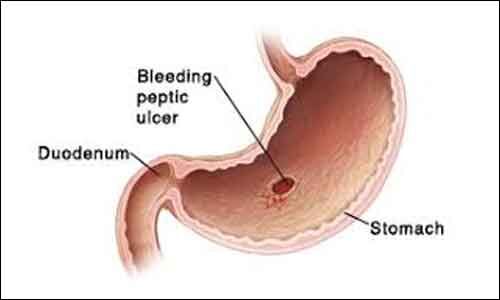Peptic ulcer does not significantly increase CVD risk, finds study
- byDoctor News Daily Team
- 15 September, 2025
- 0 Comments
- 0 Mins

A new study published in the journal ofFrontiers in Medicineshowed that peptic ulcers (PU) were 31% more likely to occur in older persons with cardiovascular disease (CVD), although PU does not increase the incidence of CVD or worsen the prognosis for those who already have it. Because of common risk factors such as age, smoking, NSAID usage, and 'Helicobacter pylori' infection, peptic ulcer and cardiovascular disease frequently coexist in the elderly. Peptic ulcer stress and chronic inflammation can worsen atherosclerosis, raising the risk of CVD. On the other hand, antiplatelet medications (like aspirin) that increase the risk of ulcer development and gastrointestinal bleeding are often used in the treatment of CVD. This reciprocal link makes treatment more difficult for older individuals, necessitating a delicate balancing act between cardiovascular therapy and gastrointestinal protection. Because proton pump inhibitors (PPIs) are frequently used to lower ulcer risk in patients on heart medicines, an integrated, multidisciplinary approach to elder care is crucial. The influence on mortality risk and the association between PU and CVD in older persons are examined in this study. Data from a national health survey of China's senior citizens was used in this investigation. There were 3,636 participants in this research. While PU had no discernible impact on the incidence of CVD (OR = 1.08, 95%CI 0.77-1.51, p = 0.64), CVD was substantially linked to an elevated risk of PU (OR = 1.31, 95%CI 1.03-1.66, p = 0.04). When compared to the non-comorbid group, the mortality risk was considerably greater in the CVD group (HR = 1.22, 95%CI 1.03-1.45, p = 0.02). The death rates of the PU-only and combination PU-CVD groups did not vary significantly. Among PU patients, stratified analysis revealed that male gender (HR = 1.29, 95%CI 1.05-1.62, p < 0.01) and advanced age (≥75 years) (HR = 1.45, 95%CI 1.06-1.87, p < 0.01) were significant mortality risk factors. Overall, PU had no discernible effect on the prognosis of individuals with CVD or total mortality. Although PU increased the risk of CVD, CVD was not a substantial risk factor for PU. Male and older PU patients had a greater death risk. These results point to the necessity of age- and gender-stratified PU management plans for high-risk populations. He, L., Wang, Q., Qiu, Y., Shen, N., Pu, P., Wang, R., Miao, H., Zhang, H., Yu, X., Xiao, D., Xing, L., & Liu, Z. (2025). The relationship between peptic ulcer and cardiovascular disease in elderly population: A study on mortality and disease development. Frontiers in Medicine, 12, 1610867.https://doi.org/10.3389/fmed.2025.1610867
Disclaimer: This website is designed for healthcare professionals and serves solely for informational purposes.
The content provided should not be interpreted as medical advice, diagnosis, treatment recommendations, prescriptions, or endorsements of specific medical practices. It is not a replacement for professional medical consultation or the expertise of a licensed healthcare provider.
Given the ever-evolving nature of medical science, we strive to keep our information accurate and up to date. However, we do not guarantee the completeness or accuracy of the content.
If you come across any inconsistencies, please reach out to us at
admin@doctornewsdaily.com.
We do not support or endorse medical opinions, treatments, or recommendations that contradict the advice of qualified healthcare professionals.
By using this website, you agree to our
Terms of Use,
Privacy Policy, and
Advertisement Policy.
For further details, please review our
Full Disclaimer.
Recent News
Gum disease could silently cause serious brain dam...
- 03 November, 2025
Can Early-Day Fasting Significantly Boost Metaboli...
- 03 November, 2025
Delhi HC bars doctor from running medical centre d...
- 03 November, 2025
Phase III data for Gazyva/Gazyvaro show significan...
- 03 November, 2025
Daily Newsletter
Get all the top stories from Blogs to keep track.


0 Comments
Post a comment
No comments yet. Be the first to comment!